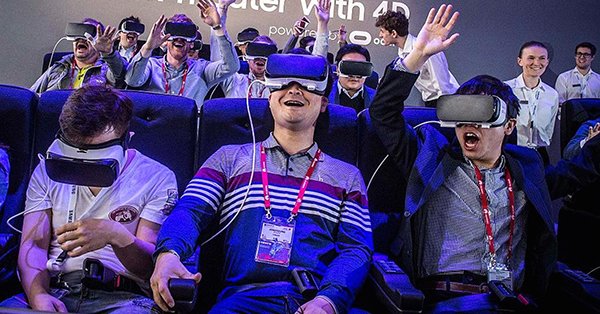Finland has played an important role in the development of consumer technology: Nokia once dominated the field of mobile phones, and Rovio, the developer of Angry Birds, and Supercell behind Tribal Conflict also originated in the country.

Now, the next wave of young companies in this Nordic country wants to be the biggest competitor in the field of VR and AR.
Moaffak Ahmed, an investor of Superhero Capital and Sisu Game Ventures, said: “I think it is very active now. There are a large number of game studios in Finland. The tradition of this game has been in existence for more than 20 years. Many of them are now experimenting with VR. It is AR. In addition to the game, we have a very influential 3D graphics industry. When these two worlds meet, there will be many interesting things happen."
Research firm Juniper said that hardware revenue for VR headsets, peripherals and 360-degree cameras will reach $50 billion in 2021, ten times the $5 billion this year. This means that there may be a huge potential market for software and services.
Many VR and AR start-up companies in Finland are gathering at the Slush Conference. The technical conference held in Helsinki, Finland attracted 15,000 participants. The Slush Conference is rapidly becoming one of the important activities of the European scientific and technological community. One of the participating companies is augmented reality startup Arilyn.
Arilyn recently completed the 500,000 Euro financing led by Superhero Capital and is expanding continuously. Finnish technicians are helping companies in the AR and VR sectors grow.
Arilyn Executive Director Emmi Jouslehto said in a telephone interview with CNBC: “The entrepreneurial situation in this field is very dynamic. Due to the existence of game companies and Nokia, there are many talents here. Many people founded their own companies or are considering becoming a company. Home, so this is an interesting situation."
The startup recently cooperated with the United Station in Washington, DC, and used its augmented reality technology to describe the history of the station. Commuters can use the tablet to see certain parts of the station to learn more about the past of the area.
Arilyn soon entered the United States, and this attitude was established in the minds of Finnish entrepreneurs from the very beginning. Anna Rosa Lappalainen, one of the founders of Finnish VR start-up Vizor, pointed out that Finnish entrepreneurs need to quickly expand to larger markets because of Finland's smaller opportunities, especially virtual reality.
“Our team is very international. We all live abroad. From the very beginning, we are a global company.†Lappalainen said: “We want to appear in the virtual reality market in Silicon Valley. We are part of it. The United States has more. Opportunity."

1. Finland is attracting VR companies in the United States
Finland has also become an important base for large VR companies to tap talent. For example, U.S. company Unity (which raised 181 million U.S. dollars at the beginning of the year) acquired Finnish start-up Applifier in 2014. The latter is one of the largest mobile game service providers in the world. Its software allows users to share and record videos of mobile games. Unity has also extended his tentacles to VR. Working with a Finnish gaming company may be an interesting way to combine social gaming with VR.
Sonja Ängeslevä, Product Director of Unity Helsinki, stated: "We believe in social and multiplayer games, including VR games. The main driving force at the moment is mobile games, with the biggest growth coming from mobile games."
A branch of Magic Leap, which is financed by Alibaba and Google, is also established in Finland. Finnish hardware maker Nokia also went deep into the VR field and launched its 360-degree camera product OZO.
2. The critical point is approaching
Despite this, Finnish young VR and AR companies will have to compete with a large number of well-funded US companies in the same market, and profitability in this market remains a challenge. This may mean that start-ups in this area will face a more intense financial environment in the future, and this situation has begun to surface. According to data from market trading tracking company Pitchbook, European VR startups have successfully raised USD 27.31 million from venture capital in the fourth quarter of 2016. However, it was lower than the 50.89 million US dollars in the same period last year.
Ahmed explained: “One or two years ago, many people in the VR field looked for investment, and we made the first investment at the time. But now it is difficult for you to look for financing with a new VR game. We are still waiting for the critical point of VR, which is very exciting, but the market is not big enough.Our suggestion to game companies is to raise as much money as possible and keep thrift.Everyone knows that the critical point is coming soon. , but we know exactly when. It will be a billion-dollar problem."
Silicone Keypad,Silicone Keyboard,Customized Rubber Keypad,Custom Silicone Keypad
CIXI MEMBRANE SWITCH FACTORY , https://www.cnjunma.com